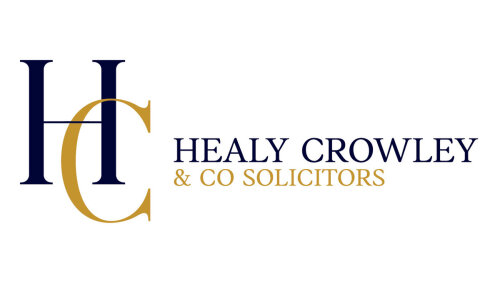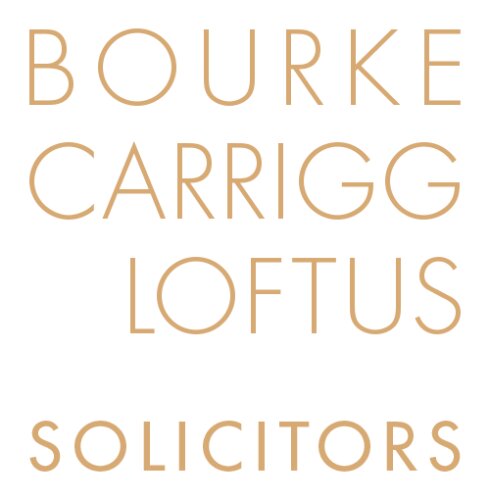Best ESG Advisory & Compliance Lawyers in Ireland
Share your needs with us, get contacted by law firms.
Free. Takes 2 min.
Or refine your search by selecting a city:
List of the best lawyers in Ireland
About ESG Advisory & Compliance Law in Ireland
Environmental, Social, and Governance (ESG) Advisory & Compliance law in Ireland refers to the legal frameworks, policies, and advisory services that help businesses operate responsibly concerning environmental protection, social issues, and strong governance practices. ESG is not only about corporate social responsibility but also involves adhering to national and European Union regulations. Irish companies are increasingly focused on integrating ESG factors into business decisions to meet legal requirements, investor expectations, and reputational standards while contributing to sustainable growth.
Why You May Need a Lawyer
Navigating ESG Advisory & Compliance can be complex. You may need a lawyer if you are launching a new business and want to embed ESG principles from the start, or if you are an established company facing new ESG regulations. Other situations include mergers and acquisitions, investment decisions, risk assessments, supply chain management, and public disclosures that require compliance with ESG standards. Legal advice is also vital in responding to ESG-related complaints, regulatory investigations, or litigation. Engaging with a legal expert helps ensure that you meet your obligations, avoid penalties, and enhance your company’s reputation.
Local Laws Overview
ESG Advisory & Compliance in Ireland is shaped by both national legislation and European Union directives. Key areas of focus include environmental protection laws, workplace diversity and equality acts, anti-bribery and corruption statutes, and corporate governance codes. The Corporate Sustainability Reporting Directive (CSRD) is a significant regulation from the EU that impacts large Irish companies by requiring detailed ESG-related disclosures. The Companies Act, Environmental Protection Agency regulations, and equality laws are also central to compliance. Irish regulations demand transparency, regular reporting, and proactive risk management in all aspects of ESG.
Frequently Asked Questions
What does ESG stand for?
ESG stands for Environmental, Social, and Governance. These are the three central factors in measuring the sustainability and societal impact of an investment in a company or business.
Why is ESG compliance important in Ireland?
ESG compliance ensures companies abide by national and EU laws, attract responsible investors, manage risks, and build long-term trust with stakeholders.
Which businesses need to comply with ESG regulations?
Traditionally, large enterprises and publicly listed companies are required to comply, but increasing pressure means SMEs and supply chains are also adopting ESG practices.
What kind of ESG disclosures are required in Ireland?
Under the Corporate Sustainability Reporting Directive and national requirements, companies may have to disclose policies, risks, targets, and performance related to environmental protection, social responsibility, and governance standards.
What are the penalties for non-compliance with ESG obligations?
Penalties can include fines, restrictions on business activities, reputational damage, and potential civil or criminal proceedings, depending on the breach and applicable law.
How does Irish law address environmental protection under ESG?
Irish law mandates companies to control environmental impact through waste management, emissions limits, and resource usage, monitored by agencies such as the Environmental Protection Agency.
Are there specific reporting requirements for social issues?
Yes, companies must often report on workplace diversity, employee rights, anti-discrimination measures, and engagement with communities, depending on their size and sector.
How do governance standards fit into ESG in Ireland?
Governance standards relate to the way a company is managed and controlled. This includes board structure, internal controls, anti-corruption measures, and ethical business conduct, as required by the Companies Act and best practice codes.
Can ESG compliance improve my business access to financing?
Yes, many banks and investors now assess ESG performance before providing financing, and strong ESG standards can make your business more attractive to them.
How can a lawyer help with ESG compliance?
A lawyer can interpret regulations, draft policies, manage reports, advise on risk, provide training, assist in due diligence, and represent your company in the event of investigations or disputes.
Additional Resources
You can learn more about ESG Advisory & Compliance in Ireland from several key resources and organizations:
- The Environmental Protection Agency (EPA) provides guidance on environmental regulations - The Irish Stock Exchange for corporate governance standards - The Central Bank of Ireland for financial sector ESG compliance - The Department of the Environment, Climate and Communications for climate policy updates - The Irish Human Rights and Equality Commission for social and labor-related guidance - Business in the Community Ireland offers NGOs and support for responsible business practices - European Commission’s website for updates on EU ESG legislation
Next Steps
If you believe your business may need assistance with ESG Advisory & Compliance in Ireland, begin by reviewing your current practices, identifying key compliance gaps, and gathering all relevant documentation. Consider arranging a consultation with a lawyer experienced in ESG matters to help you assess your obligations and develop a compliance strategy. It is often helpful to prepare questions or scenarios specific to your business so your lawyer can provide tailored guidance. Staying proactive is essential, so regular reviews and updates to your ESG policies are recommended as regulations evolve.
Lawzana helps you find the best lawyers and law firms in Ireland through a curated and pre-screened list of qualified legal professionals. Our platform offers rankings and detailed profiles of attorneys and law firms, allowing you to compare based on practice areas, including ESG Advisory & Compliance, experience, and client feedback.
Each profile includes a description of the firm's areas of practice, client reviews, team members and partners, year of establishment, spoken languages, office locations, contact information, social media presence, and any published articles or resources. Most firms on our platform speak English and are experienced in both local and international legal matters.
Get a quote from top-rated law firms in Ireland — quickly, securely, and without unnecessary hassle.
Disclaimer:
The information provided on this page is for general informational purposes only and does not constitute legal advice. While we strive to ensure the accuracy and relevance of the content, legal information may change over time, and interpretations of the law can vary. You should always consult with a qualified legal professional for advice specific to your situation.
We disclaim all liability for actions taken or not taken based on the content of this page. If you believe any information is incorrect or outdated, please contact us, and we will review and update it where appropriate.
Browse esg advisory & compliance law firms by city in Ireland
Refine your search by selecting a city.

















